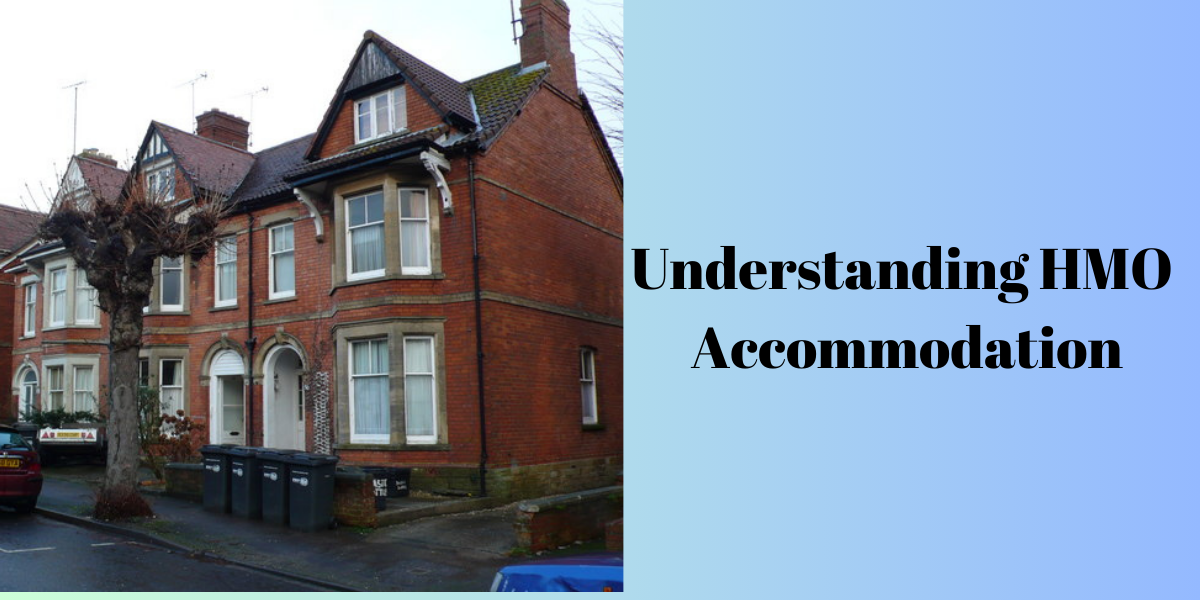House of Multiple Occupations or HMO is a well-known housing arrangement that offers unique benefit to both tenants and investors. With the rise in demand for affordable housing and increasing population, HMOs have come up with a practical solution. Let’s dig in this topic in detail and learn all about the regulations, benefits, and considerations of HMO.
Contents
- Understanding HMO Accommodation
- HMO Licensing
- Benefits of HMO Accommodation
- Increased Rental Income
- Mitigated Risk
- Affordability for Tenants
- Built-in Social Network
- Fully Furnished Option
- Professional Management
- How do HMOs differ from other rental properties?
- Shared Spaces
- Higher Occupancy
- Rental Income Potential
- Regulations and Licensing
- Tenant Dynamics
- Property Management
- Tenant Preferences
- Conclusion
Understanding HMO Accommodation
HMO accommodation includes individual rooms given to separate tenants in shared houses while the common areas like bathrooms and kitchens are shared among occupants. This arrangement works well among young professionals, students, and individuals looking for budget-friendly houses.
HMO Licensing
As per the Housing Act 2004, big HMOs need to have a license. Not every HMOs needs license however the HMO rental property fits into the definition of a large HMO. Large HMOs are the ones that have 5 or more tenants sharing more than one housing facility like toilet, kitchen, and bathrooms or are occupying more than three floors.
Also Read: Universal Credit Calculator- How much will I receive?
Benefits of HMO Accommodation
HMO accommodation comes with many benefits other than just being a great pick for people who wish to live near their University or office. Here are some of the key benefits of HMOs.
Increased Rental Income
Renting multiple rooms in a single property increases the chances of generating rental income. HMOs are great investments as you can expect higher returns in comparison to single-tenant rental property.
Mitigated Risk
Having multiple tenants occupying various rooms the risk of having vacant property is reduced. in case one of the tenants moves out, the stream of income is stable from other occupied rooms.
Affordability for Tenants
HMO accommodation allows tenants to live in desirable locations with an affordable price range. Sharing living spaces by splitting bills will help people save money while living in a comfortable environment.
Built-in Social Network
HMOs allow like-minded people to live in one place together. This built-in social network is great for newcomers to the city.
Fully Furnished Option
HMOs are often fully furnished which makes them a convenient space for tenants who wish to relocate or cannot invest in their own furnishings. This helps by adding an extra layer of appeal to potential renters.
Professional Management
Many HMO property owners hire property management companies to handle their day-to-day operations like maintenance, tenant screening, and rent collection. This makes HMO property streamlined for busy investors.
Also Read: Universal Credit Log In: How do I Sign into my account?
How do HMOs differ from other rental properties?
HMO accommodation is different from other rental properties in various ways due to the increased number of occupants and shared living.
Here are some key differences in both:
In comparison to Co-living, there are many differences between HMOs and Co-living. HMO have common living areas like bathrooms, kitchen which are often shared by other tenants. This generates a sense of community and provides a social living experience in comparison to traditional rental property.
Higher Occupancy
HMO is made with a view to having multiple tenants living in individual rooms. This increases the chance of occupancy in comparison to single-rental properties and also reduces the risk of rental income or vacancies.
Rental Income Potential
With a multiple tenancy structure, the HMOs have chances of generating higher rental income in comparison to rental properties. The combined rent that comes from multiple tenants offsets the operating costs and yields great profits.
Regulations and Licensing
HMO accommodations have strict regulations and licensing requirements because of higher occupants and potential fire hazards. Complying with the regulations becomes essential to ensure the well-being and safety of tenants.
Tenant Dynamics
As there are multiple tenants living together HMOs need careful consideration of tenant dynamics. Having compatible tenants helps in maintaining a positive living environment and minimizing the chances of conflicts.
Property Management
Managing the HMO accommodation is complex in comparison to managing single-tenant rentals. Property owners opt for professional property management services for handling tenant issues, compliance, and maintenance.
Tenant Preferences
HMO accommodations are preferred by young professionals, students, and individuals who are looking for affordable housing options. These tenants are comfortable with compromising privacy in exchange for social interactions and cost savings.
Conclusion
HMO accommodation presents an attractive housing solution to tenants and property owners alike. The increase in rental income, affordability, and mitigated risk makes the HMO an appealing investment.
However, it is important to navigate the regulatory landscape, maintaining safety standards and keeping in consideration tenant compatibility to reap rewards in a thriving property market. Whether you are a tenant in search of affordable housing or an investor looking to maximize the returns HMO is a compelling solution.
Also Read: Universal Credit Log In: How do I Sign into my account?

I am a dedicated lifestyle and fashion enthusiast, always looking for the latest trends and timeless styles. With a flair for creativity and a passion for self-expression, I provide fresh insights and tips on elevating everyday living and personal style.
















